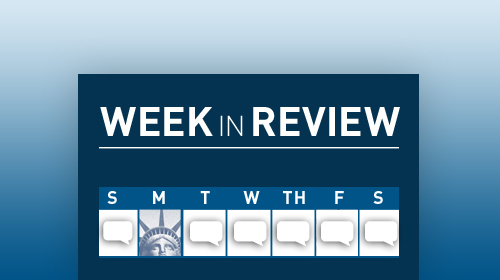
Which state recently passed the first bill in the nation that bans employers from asking for social media passwords?
Which Michigan agency has ended the practice of sexually abusive searches of women prisoners?
What constitutionally-guaranteed freedom is the U.S. Conference of Catholic Bishops trying to use as an excuse to discriminate?
How many states passed laws that threaten minority and low-income voters’ rights?
What group met this week to discuss a mechanism that would allow users to opt out of being tracked online?
Maryland Legislature to Employers: Hands Off Facebook Passwords
The state of Maryland just passed the first bill in the nation that bans employers from asking for the social media passwords of job applicants and employees. In a statement that the ACLU of Maryland issued about the bill’s passage, Melissa Goemann, Legislative Director of ACLU of Maryland, said, “We are proud of Maryland for standing up for the online privacy of employees and the friends and family members they stay in touch with online. Our state has trail-blazed a new frontier in protecting freedom of expression in the digital age, and has created a model for other states to follow.”
Standing Up Against Sexual Assault By the State
The American Civil Liberties Union and the ACLU of Michigan confirmed this week that the Michigan Department of Corrections has abandoned the routine implementation of a degrading body cavity search in which prisoners at the Women’s Huron Valley Correctional Facility (WHV) were forced to spread open their labia using their hands, often under unsanitary conditions and sometimes in full view of other prisoners.
Whose Religious Freedom?
The freedom of religion and belief is one of our most cherished liberties. The First Amendment protects our right to believe whatever we choose. The U.S. Conference of Catholic Bishops (USCCB) would like you to think this right is in peril. As defenders of the Constitution, we beg to differ, and think that some of the recent controversies actually show that the First Amendment is doing its job, and confirm that religious freedom in America is alive and well.
Infographic: The Facts About Voter Suppression
The right to vote is under attack. In response to record voter turnout in 2008, we’ve seen an uptick in state legislation aimed at suppressing the vote. More than 30 states introduced voter suppression legislation in 2011. Check out these infographics and learn more about how the attack on the right to vote disproportionately impacts minority voters.
Making Do Not Track a Reality
This week in Washington D.C., an expert group of companies, consumer groups, browser makers and government regulators gathered in one of the final stages towards resolving what it means to not track someone online. The “Tracking Protection Working Group of the World Wide Web Consortium” (W3C) is an international standards setting body made up off all the different stakeholders who make the Internet run. They held face to face meetings and attempt to hammer out the difficult technical issues around a Do Not Track (DNT) mechanism, one that would allow users to opt out and convey that they don’t want to be tracked.
Los Angeles Sheriff Endorses Report Recommending Swift Closure of Infamous Jail
A groundbreaking report released Tuesday provides a roadmap for the closure of the notorious and violence-plagued Men’s Central Jail in downtown Los Angeles. If the report’s major recommendations are implemented, it could well lead tomajor shift in criminal justice policy and practice — not only in Los Angeles but across the nation.
This is your week in civil liberties. Let us know if this is useful or if you’d like to see changes. Share your thoughts: ideas@aclu.org
Learn more about your rights: Sign up for breaking news alerts, follow us on Twitter, and like us on Facebook.


